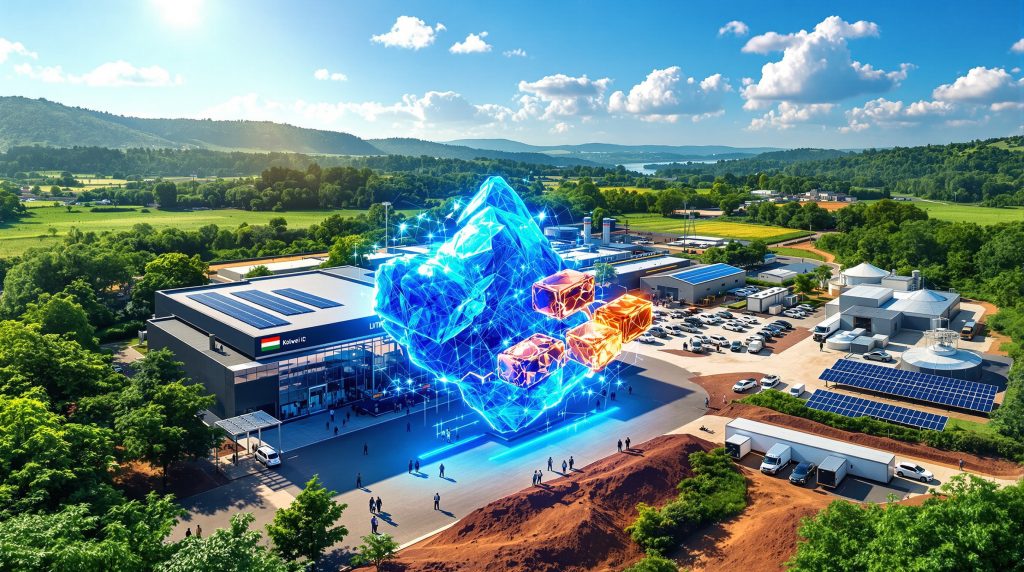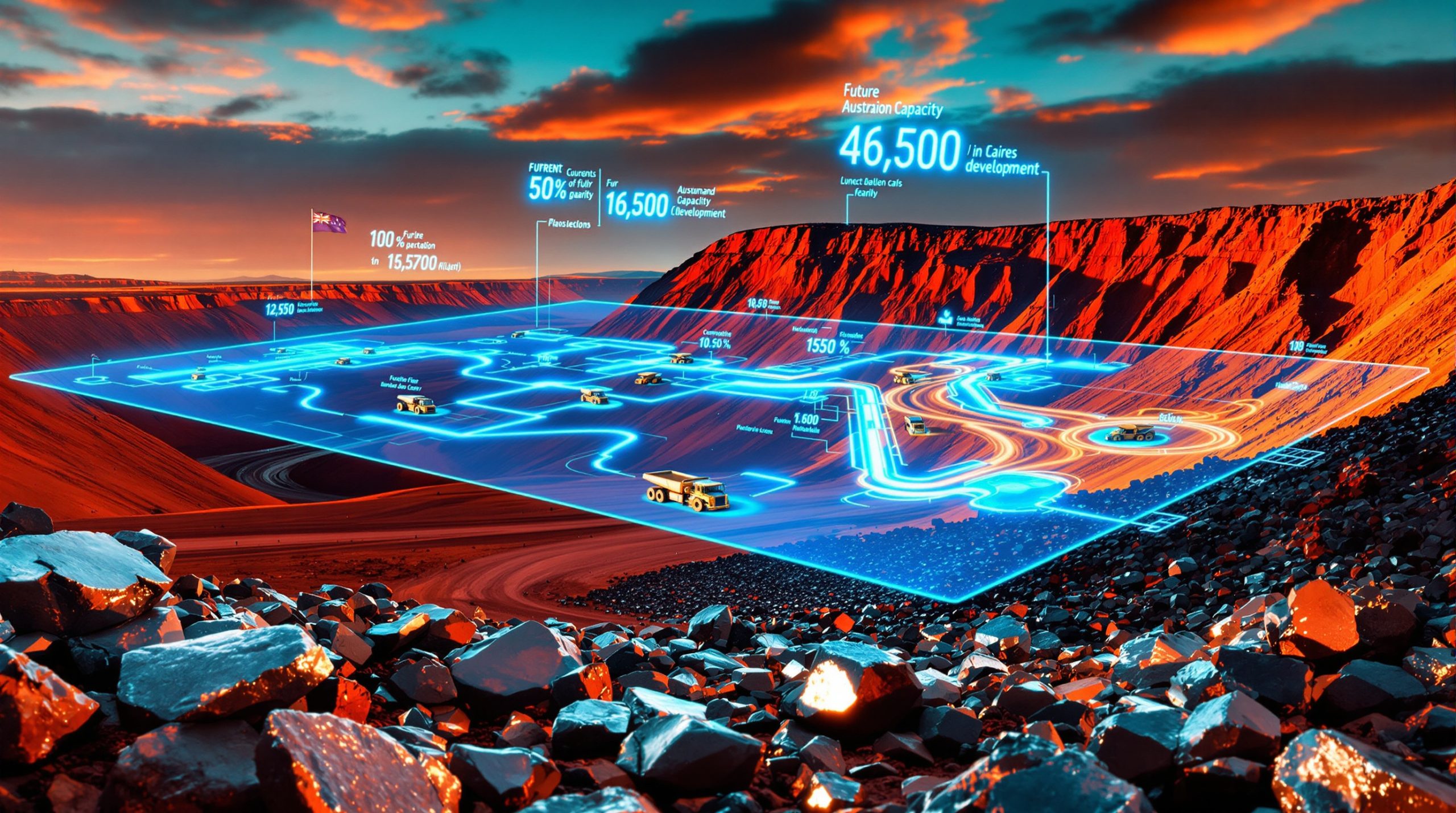What is the DRC-Africa Battery Metals Forum?
The DRC-Africa Battery Metals Forum has established itself as a pivotal platform for advancing Africa's critical minerals sector. Since its inception, this annual gathering has evolved from a simple discussion forum into a comprehensive ecosystem connecting key stakeholders across the battery metals value chain. The forum facilitates meaningful dialogue between government officials, academics, business leaders, and investors focused on unlocking the Democratic Republic of Congo's immense mineral potential.
The 2025 edition marked a significant strategic shift as the event relocated from Kinshasa to Kolwezi—the heart of the DRC's copper and cobalt belt. This move demonstrates the forum's maturation from theoretical discussions to practical engagement with industry operators on the ground, where mining activities are transforming the region's economy.
Beyond being a mere conference, the forum serves as an incubator for partnerships, policy frameworks, and technological innovations that aim to position the DRC and broader Africa as responsible leaders in the global battery recycling breakthrough and supply chain.
Evolution and Growth
The forum's journey over three years reflects the rapidly increasing importance of battery metals in the global economy. What began as a specialized industry event has grown into a critical meeting ground for addressing complex challenges across the entire value chain—from extraction to processing and end-use applications.
Each year has seen expanding participation, with the 2025 edition attracting record attendance from across Africa and beyond. This growth mirrors the escalating global interest in securing sustainable supply chains for the materials powering the energy transition.
Why is the DRC Critical to Global Battery Metal Supply?
The DRC's Unique Mineral Endowment
The Democratic Republic of Congo stands as an unparalleled geological treasure trove, possessing mineral resources that have become indispensable to the global energy transition. The country's natural endowment includes:
- Approximately 70% of the world's cobalt reserves, with current production dominating global supply
- Vast copper deposits exceeding tens of millions of tonnes, positioning it among the top global producers
- Emerging potential for lithium resources being explored across several promising geological formations
- Strategic positioning for graphite and manganese exploration in untapped regions
The geological uniqueness of the Congolese Copperbelt creates mineral concentrations that are not replicated elsewhere on Earth. The region's copper-cobalt formations provide exceptional ore grades that make production economically viable even during market downturns.
Global Demand Dynamics Driving Interest
Several powerful market forces have intensified international focus on the DRC's resources:
- The electric vehicle revolution is projected to require a 300% increase in battery metal demand by 2035
- Energy storage systems for renewable power integration are creating entirely new market segments
- Consumer electronics continue to drive base demand for these materials
- National security concerns have elevated these minerals to strategic status in many countries
Battery manufacturers and automakers are increasingly seeking direct involvement in the DRC to secure supply chains, evidenced by the growing number of offtake agreements and joint ventures announced in recent years.
Strategic Importance in Energy Transition
The minerals abundant in the DRC are not merely commodities but strategic materials enabling global decarbonization efforts. Without reliable access to these resources, the worldwide push toward electric mobility and renewable energy storage faces significant constraints.
This reality has elevated the DRC's importance in international relations, with major economies developing specific diplomatic initiatives focused on securing favorable access to these critical minerals transition.
How Does the Forum Address Key Industry Challenges?
Value Addition and Domestic Processing
A centerpiece of the 2025 forum was the transition from raw material extraction to higher-value activities within Africa. Discussions explored multiple dimensions of this challenge:
- Feasibility studies for cathode precursor production facilities within the DRC
- Technical partnerships for knowledge transfer and capacity building
- Financing mechanisms specifically designed for processing infrastructure
- Policy frameworks that incentivize domestic processing without deterring investment
The forum highlighted case studies from other resource-rich nations that have successfully implemented value addition strategies, providing practical models that could be adapted to the Congolese context.
Sustainable Development and ESG Implementation
Environmental, social, and governance considerations featured prominently throughout the forum's sessions, reflecting their growing importance to investors and consumers alike:
| ESG Dimension | Key Focus Areas | Implementation Approaches |
|---|---|---|
| Environmental | Tailings management, water conservation, biodiversity | Closed-loop systems, renewable energy integration |
| Social | Community benefit-sharing, local employment | Skills development programs, transparent revenue sharing |
| Governance | Transparency initiatives, anti-corruption measures | Blockchain traceability, independent monitoring |
The forum facilitated frank discussions about the challenges of implementing ESG best practices in remote operations, acknowledging that progress requires both regulatory frameworks and voluntary industry leadership.
Infrastructure Development Priorities
Participants identified critical infrastructure needs to support the battery metals sector's growth:
- Reliable power supply systems for energy-intensive processing activities
- Transportation networks connecting mines to markets, including the strategic Lobito Corridor
- Water management infrastructure for sustainable operations in water-stressed regions
- Digital connectivity enabling modern mining technologies and supply chain transparency
The forum explored innovative public-private partnership models that could accelerate infrastructure development without overburdening national budgets.
Who Participates in the DRC-Africa Battery Metals Forum?
Government Leadership Engagement
The 2025 forum featured robust participation from public sector leaders, underscoring the strategic importance governments place on battery metals:
- H.E. Jeffrey Masuka, Lualaba Provincial Minister in charge of Energy, Transportation, Road Communication, Hydrocarbures, Industry, and Tourism
- Representatives from mining ministries across multiple African nations
- Regulatory authorities responsible for environmental oversight
- Economic development agencies focused on industrial growth
These government representatives shared insights into policy developments and regulatory frameworks being established to balance investment attraction with national development objectives.
Private Sector Stakeholders
The forum attracted diverse participation from industry players spanning the entire value chain:
- Mining companies operating in the DRC and broader region
- Battery manufacturers seeking supply chain security
- Technology providers offering solutions for sustainable mining
- Financial institutions interested in project financing
- Consulting firms specializing in mining strategy and operations
This mix created valuable opportunities for business-to-business connections and partnership development outside the formal program.
Technical Expertise Contributors
The forum benefited from specialized knowledge provided by experts in various domains:
- Geologists with deep understanding of the region's unique mineral formations
- Metallurgists focused on processing technologies optimized for Congolese ores
- Engineers developing innovative extraction methods with reduced environmental impact
- Environmental scientists addressing sustainability challenges specific to tropical mining
- Academics researching industry best practices and future trends
These technical contributors ensured discussions were grounded in scientific understanding and practical implementation considerations rather than purely theoretical concepts.
What Makes the 2025 Forum Significant?
Evolution from Discussion to Action
The 2025 forum represented a maturation of the platform from conceptual exchanges to actionable initiatives:
- Concrete partnership agreements signed between stakeholders during the event
- Launch of specific projects related to sustainable mining practices
- Establishment of working groups focused on key industry challenges
- Development of roadmaps with clear timelines for implementation
As VUKA Group's Stakeholder & Programme Director, Audrey Bading Mve, observed: "All beginnings are tough, but the quality of attendees and the support from government show that this event is adding real value." This sentiment reflected the forum's growing influence as a catalyst for tangible progress.
Focus on Special Economic Zones
A highlight of the 2025 program was extensive discussion of Special Economic Zones (SEZs) as catalysts for industrial development:
- Detailed analysis of suitable locations for battery metals processing hubs
- Incentive structures needed to attract international investment
- Integration of SEZs with broader economic development planning
- Case studies from other regions that have successfully implemented similar models
The SEZ discussions represented a practical approach to addressing the infrastructure and policy barriers that have historically limited value addition within Africa.
Environmental Transformation Pathways
The forum dedicated significant attention to environmental sustainability, recognizing this as both a challenge and opportunity:
- Innovative approaches to mine rehabilitation that restore ecosystem functions
- Circular economy principles applied to mining waste reduction and reuse
- Climate change mitigation strategies including renewable energy integration
- Water stewardship initiatives designed for the region's specific hydrological conditions
These discussions acknowledged the mining industry's environmental responsibilities while exploring pathways to minimize negative impacts throughout the value chain.
How Does the Forum Benefit the DRC and Africa?
Economic Growth Potential
The battery metals sector represents a significant economic opportunity when developed strategically:
- Foreign direct investment attraction to both mining and processing activities
- Export revenue generation from higher-value products rather than raw materials
- Job creation across the mineral value chain, including high-skilled positions
- Development of supporting industries and services creating economic multiplier effects
The forum specifically addressed how these economic benefits can be maximized through thoughtful policy frameworks and strategic industry partnerships.
Infrastructure Development Catalyst
Mining activities can drive broader infrastructure improvements with economy-wide benefits:
- Transportation networks connecting previously isolated regions to market opportunities
- Power generation and distribution systems that serve both industry and communities
- Industrial zones supporting manufacturing and service activities beyond mining
- Digital connectivity enhancing productivity, safety, and transparency
These infrastructure investments create positive spillover effects that extend far beyond the mining sector, potentially transforming regional development patterns.
Global Positioning in Clean Energy Transition
The forum strengthens Africa's role in shaping the future of sustainable technology:
- Establishing the continent as an indispensable player in clean energy supply chains
- Creating opportunities to influence global standards and practices from a position of strength
- Building recognition of Africa's contribution to climate solutions rather than problems
- Developing partnerships with technology leaders worldwide
This positioning helps ensure that Africa's resource wealth translates into meaningful participation in the global energy transition, rather than merely extractive relationships.
What Are the Key Takeaways from the Forum?
Collaborative Approach to Development
The forum emphasized that successful development of the battery metals sector requires multi-stakeholder collaboration:
- Public-private partnerships for infrastructure development and operation
- Industry-community engagement for securing and maintaining social license
- Cross-border cooperation on regional initiatives like transportation corridors
- International partnerships for technology transfer and capacity building
This collaborative mindset represents a departure from traditional siloed approaches to resource development, recognizing the complex interdependencies in the battery metals ecosystem.
Balancing Immediate Needs with Long-term Vision
Discussions acknowledged the tension between short-term economic imperatives and long-term sustainability goals:
- Need for immediate economic benefits while building foundations for future growth
- Balancing extraction with conservation of resources for future generations
- Managing community expectations while ensuring realistic outcomes
- Developing regulatory frameworks that provide certainty while allowing innovation
The forum provided a platform for addressing these complex trade-offs constructively rather than adversarially.
Importance of Local Content and Skills Development
Participants highlighted the critical role of human capital development in creating lasting value:
- Training programs for technical and managerial skills aligned with industry needs
- Knowledge transfer mechanisms from international to local professionals
- Educational initiatives targeting gaps in the skilled workforce pipeline
- Support for local entrepreneurship in the mining supply chain and service sectors
These discussions recognized that sustainable development depends on building local capacity alongside physical infrastructure and policy frameworks.
What's Next for the DRC-Africa Battery Metals Forum?
Expanding Regional Participation
Future forums aim to broaden engagement across the African continent:
- Increased representation from emerging battery metals producers beyond the DRC
- Cross-regional knowledge sharing on best practices and challenges
- Collaborative approaches to common issues like infrastructure constraints
- Unified positioning in global markets to maximize collective benefits
This regional expansion will strengthen Africa's collective voice in the global battery metals conversation while acknowledging the unique contributions of each participating nation.
Deepening Technical Focus
Plans for upcoming forums include more specialized technical sessions:
- Advanced processing technologies specifically optimized for African ore bodies
- Innovative extraction methods minimizing environmental impact in sensitive ecosystems
- Quality control systems for meeting increasingly stringent international standards
- Research and development priorities focused on the region's unique challenges
These technical discussions will help bridge the gap between theoretical knowledge and practical implementation in the African context.
Measuring Impact and Progress
Future forums will incorporate mechanisms for tracking progress against established goals:
- Benchmarking against internationally recognized industry standards
- Monitoring implementation of commitments made at previous forums
- Showcasing successful projects and initiatives that demonstrate best practices
- Identifying persistent challenges requiring additional attention and resources
This focus on measurable outcomes will enhance the forum's credibility and practical relevance to all stakeholders.
FAQ: Understanding the DRC-Africa Battery Metals Forum
How does the forum address concerns about artisanal mining?
The forum provides a platform for discussing formalization strategies for the artisanal mining sector, which employs thousands across the DRC. Discussions focus on balancing livelihood protection with environmental and safety concerns through cooperative models, technical support programs, and transparent supply chain initiatives. The goal is gradual professionalization rather than marginalization of this important economic sector.
What role do international standards play in the forum's discussions?
International standards serve as benchmarks for responsible mining practices, with the forum exploring practical implementation strategies for frameworks like the OECD Due Diligence Guidance, Initiative for Responsible Mining Assurance (IRMA), and Extractive Industries Transparency Initiative (EITI). Discussions address how these standards can be adapted to local contexts while maintaining their integrity and global credibility.
How does the forum address concerns about Chinese dominance in the DRC mining sector?
The forum approaches this topic through balanced discussions of diversification strategies that can benefit all stakeholders. Rather than focusing on exclusion, sessions explore partnership models that protect national interests while leveraging foreign expertise and capital. The emphasis remains on creating mutually beneficial relationships with all international partners while maximizing domestic value retention.
What initiatives are being developed to address environmental impacts of mining?
The forum highlights innovative approaches to environmental management, including water recycling systems, renewable energy integration, biodiversity conservation programs, and progressive rehabilitation techniques. These discussions emphasize both compliance with regulations and voluntary adoption of best practices that exceed minimum requirements, recognizing that environmental leadership can create competitive advantages.
How does the forum contribute to community development around mining areas?
Community development discussions center on creating sustainable benefits beyond direct employment. Sessions explore benefit-sharing mechanisms, participatory planning processes, local procurement initiatives, and social investment strategies. The forum showcases successful models where mining activities have contributed positively to healthcare, education, and economic diversification in surrounding communities.
Further Exploration:
Readers interested in learning more about the DRC's minerals sector can also explore related educational content, such as Mining Review Africa's article "DRC Battery Metals Forum: Driving dialogue on critical minerals". Furthermore, understanding the recent lithium market crisis and emerging battery-grade lithium refining technologies provides essential context for appreciating the beneficiation opportunities discussed during the DRC-Africa Battery Metals Forum.
Looking to Capitalize on the Next Major Battery Metals Discovery?
Discovery Alert's proprietary Discovery IQ model delivers instant notifications on significant ASX mineral discoveries, transforming complex geological announcements into actionable insights for both short-term traders and long-term investors. Explore historic examples of exceptional returns from major discoveries by visiting the dedicated discoveries page and position yourself ahead of the market.




